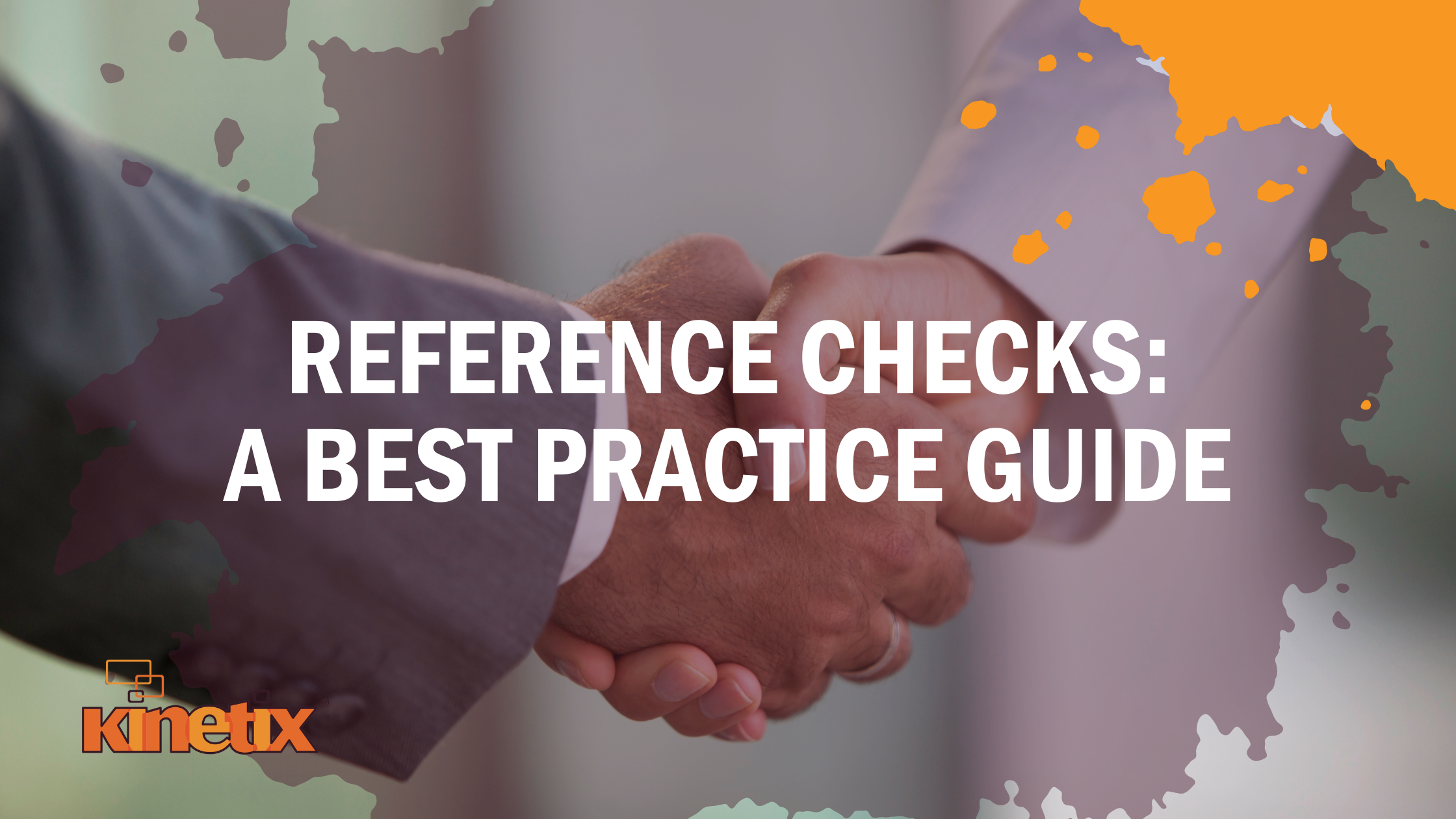
Getting references isn't as simple as it used to be.
Managers know that disclosing too much or too little can have legal consequences. In recent years companies have been sued for not revealing enough information, while others have paid huge settlements for providing a negative reference.
When checking references, it's important not to rush through the process or skip it altogether. Even in a competitive market, getting reliable information from a candidate's former employer is critical before hiring.
In this blog, we'll explain what you need to know about employee reference checks and the questions you should ask.
What is a reference check?
A reference check is a means of confirming information provided by the candidate during the hiring process. Reference checks allow recruiters to understand the individual's previous employment, training, and other activities, such as volunteer work.
Reference checks are an indispensable part of the recruitment process and pre-employment checks employers and recruiters can use before hiring a new employee.
Importance of reference checks
While there is no legal requirement for organizations to provide references about past employees, reference checks are a best practice to ensure a person's suitability for a role.
The purpose of a reference check is to gather feedback on a candidate. This involves contacting the candidate's former managers, direct reports, and coworkers to learn more about their strengths, working styles, and cultural fit for the position.
When to seek a reference
Reference checks should be made after the interview process and before the provisional offer. The applicant must be aware and provide permission before getting a reference from their current employer because they may not have notified them of their intention to leave.
References shouldn't be used as the basis for shortlisting or evaluating an applicant's suitability for a role. Hiring decisions should be based on the broader information collected during the recruitment process. These can be interviews, tests, or other forms of assessments required for the role.
References should aim to collect details about:
- Past employment, volunteering, and education
- Dates of employment, volunteering, and education
- Position held or field of study
- Recent or ongoing disciplinary action or referrals
- Reasons for leaving, if known
Conducting a reference check
People are busy, so you'll want to make the most of your time with your candidate's reference. You should start the reference check by establishing how the reference knows the candidate and under what capacity they worked together (peer, manager, co-worker).
To guide you through the rest of the reference check process and keep you out of hot water, we have compiled 8 critical questions to ask references.
*It's important to note that laws in your state may limit what you can and can't ask. The following questions are generally accepted as best practice, but please be aware of the restrictions of your specific location.
Questions to ask a reference
1. Can you confirm the candidate's dates of employment?- Even companies with prohibitive policies on providing references can confirm dates of employment.
- Verify whom you are speaking with and their job title to make sure they match what the candidate gave you and to clarify the relationship of that person to the candidate. A reference from a "manager" could be a direct manager or a manager from another department providing a character reference.
- This question is important because the most common mistake on a résumé is exaggerating credentials. The response to this question will help you uncover if the candidate has exaggerated their job title or responsibilities.
- Don't assume the worst if you find discrepancies between the information provided by the candidate and the reference. Ask the candidate about differences. There may be a simple explanation.
- Not every employer can or will respond to this question, and in some states, references are only permitted to tell you if the candidate broke any laws.
- If the reference is willing to provide the requested information, they may also be willing to share information about any awards, products the candidate created, or any soft skills they possessed.
- This question can help shed light on the candidate's fit for the position. For example, someone in the same role for ten years may not be a good fit for a dynamic role in a fast-paced environment. Just like an ambitious candidate continuously seeking new responsibilities may not be a good fit for a role that is not likely to change or provide avenues for advancement.
- This question can kill two birds with one stone. The answer will hopefully give you an idea of the candidate's preferred work environment and how it aligns with your company culture. It might also give you an understanding of how best to manage them to bring out their best work.
- If the reference only provides basic information like job title and years of employment, this question can provide valuable information depending on how quickly they respond.
- If the reference had minimal contact with the candidate, they might be able to put you in touch with someone who had more direct contact and knowledge of the candidate’s work product.
Reference checks are a worthwhile element of the hiring process. A short conversation with a reference reveals a lot about your candidate. By knowing how to conduct an effective reference check, you can make better hiring decisions for your organization that improve satisfaction, performance, and retention.
Need more great hiring advice? Check out the Kinetix blog.

